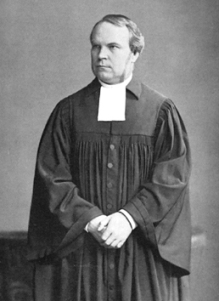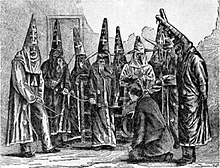1909 ⟶ Emergence of New Antisemitism
Salomon Reinach and Florence Simmonds refer to "this new ant...Year
1878
1879
1899
1909
1921
1996
🚩 Adolf Stoecker Founds Christian Social Party
Adolf Stoecker, German antisemitic preacher and politician, founds the Christian Social Party, which marks the beginning of the political antisemitic movement in Germany.⟶

Political antisemitismChristian Social PartyAdolf StoeckerGermany19th centuryIdeologyAntisemitism
 Germany
Germany🗣️ Heinrich von Treitschke Justifies Antisemitism
Heinrich von Treitschke, German historian and politician, justifies the antisemitic campaigns in Germany, bringing antisemitism into learned circles.⟶

IdeologyAntisemitismHeinrich von TreitschkeGermanyAcademic antisemitism19th century
 Germany
Germany📖 Houston Stewart Chamberlain Publishes 'Die Grundlagen des 19 Jahrhunderts'
Houston Stewart Chamberlain, racist and antisemitic author, publishes his Die Grundlagen des 19 Jahrhunderts which later became a basis of National-Socialist ideology.⟶

AntisemitismRacismIdeologyNational SocialismInfluenceProto-fascismRacial Theory20th Century
 Germany
Germany📢 Emergence of New Antisemitism
Salomon Reinach and Florence Simmonds refer to "this new antisemitism, masquerading as patriotism, which was first propagated at Berlin by the court chaplain Stöcker, with the connivance of Bismarck." Similarly, Peter N. Stearns comments that "the ideology behind the new anti-Semitism was more racist than religious."⟶

AntisemitismNew AntisemitismRacismIdeologyEarly 20th CenturyPolitical AntisemitismBismarck
 Germany
Germany🔥 Rise of Antisemitism in the US led by the Ku Klux Klan
Outbreak of antisemitism in United States, led by Ku Klux Klan.⟶

AntisemitismKu Klux KlanHate GroupsUnited StatesRacismWhite SupremacyEarly 20th CenturyNativism
 United States
United States✍️ T.S. Eliot Accused of Antisemitism
The depiction of Jews in some of T.S. Eliot's poems has led several critics to accuse him of anti-Semitism. This case has been presented most forcefully in a study by Anthony Julius: T. S. Eliot, Anti-Semitism, and Literary Form (1996). In "Gerontion", Eliot writes, in the voice of the poem's elderly narrator, "And the jew squats on the window sill, the owner / Spawned in some estaminet of Antwerp." Another well-known example appears in the poem, "Burbank with a Baedeker: Bleistein with a Cigar". In this poem, Eliot wrote, "The rats are underneath the piles. / The jew is underneath the lot. / Money in furs." Interpreting the line as an indirect comparison of Jews to rats, Julius writes, "The anti-Semitism is unmistakable. It reaches out like a clear signal to the reader." Julius's viewpoint has been supported by literary critics such as Harold Bloom, Christopher Ricks, George Steiner, Tom Paulin and James Fenton.⟶

LiteratureT.S. EliotAntisemitismLiterary CriticismIdeology20th CenturyPoetry